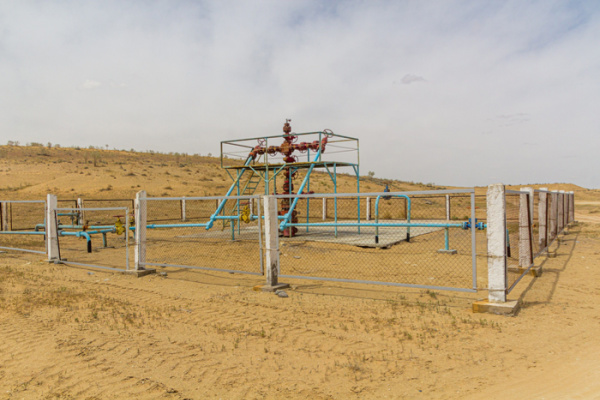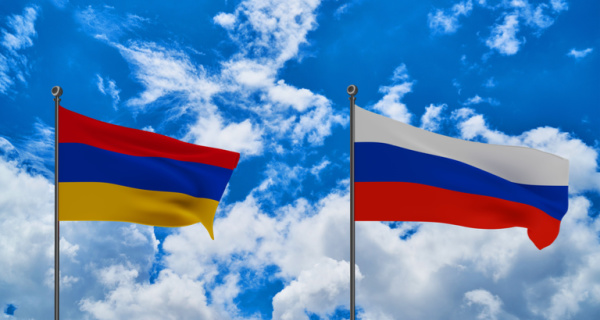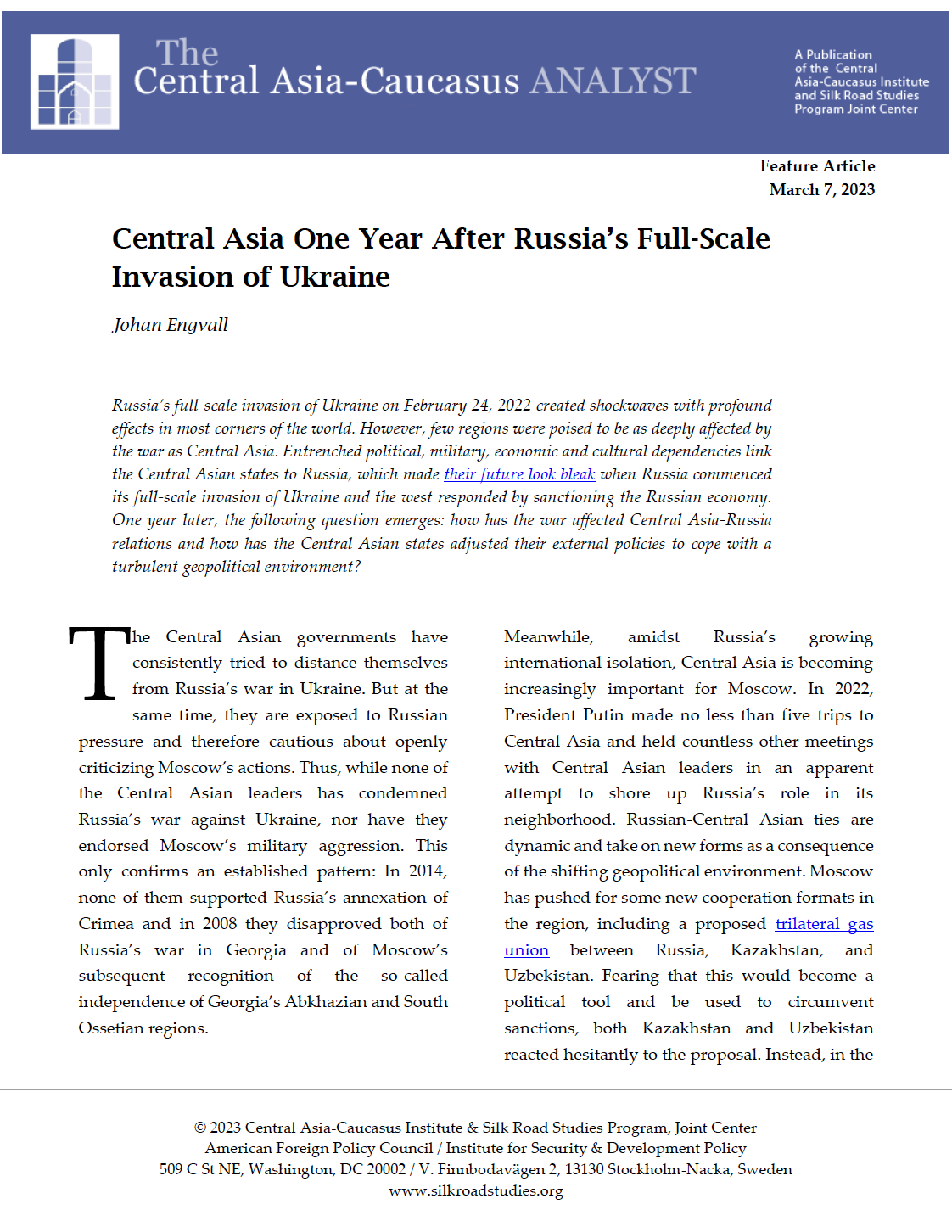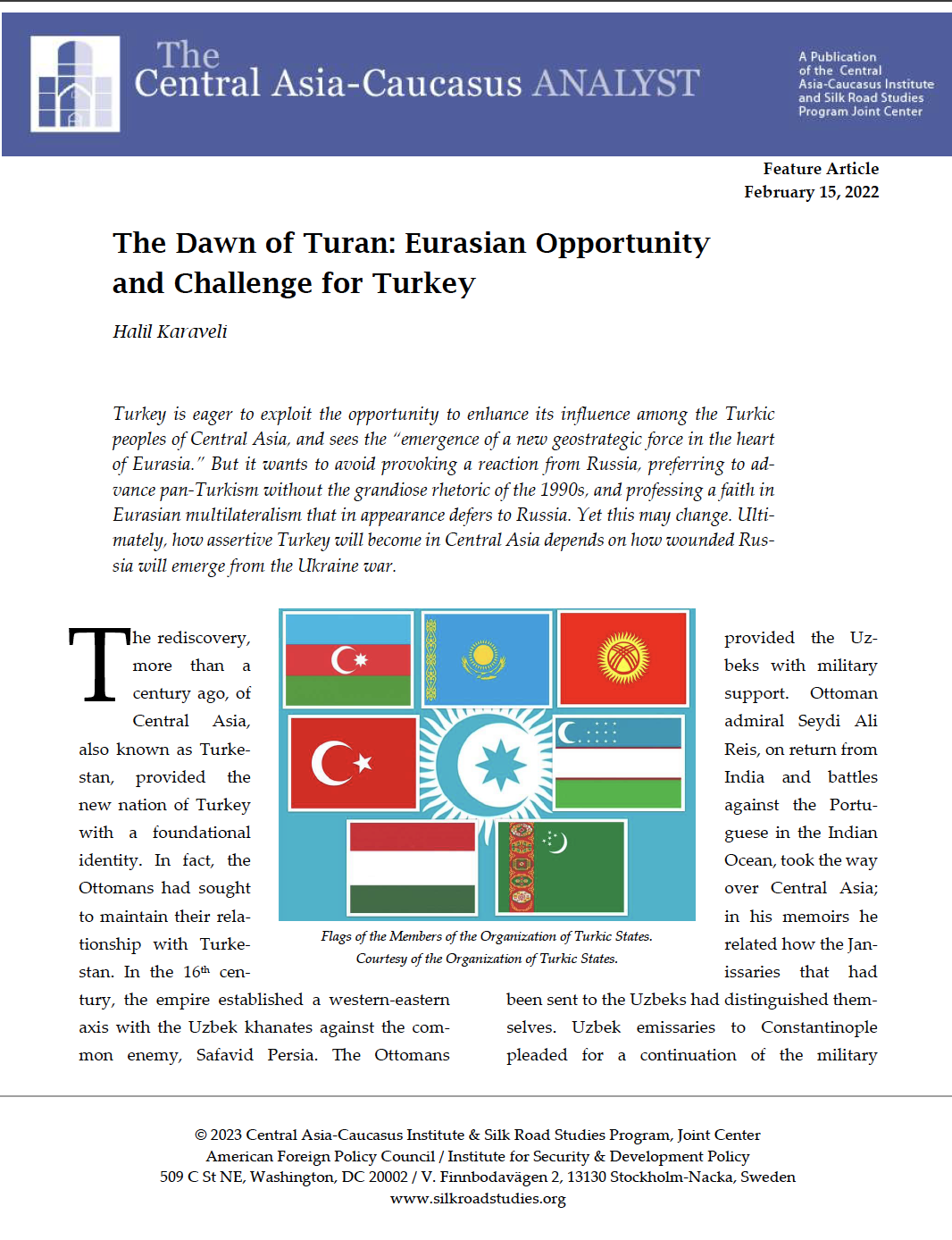Abkhaz President Heads for Open Conflict with de Facto Parliament
By Tomáš Baranec
May 12, 2023
On March 6, 2023, the de facto General Prosecutor’s Office (GPO) of Abkhazia confirmed violations of local legislation in the interstate agreement on the lease of land in Pitsunda (Bichvinta in Georgian) to Russia. This factual rejection of the agreement in its current form seemingly closed a controversial topic that has been affecting Abkhazia for several months. However, it merely closes one chapter of the dispute, which has launched processes that are beginning to push the Russia-supported de facto President Aslan Bzhania into an increasingly open conflict not only with local society but also with the originally pro-presidential parliamentary majority.

Energy Crisis Places Turkmenistan in the Geopolitical Spotlight
By Natalia Konarzewska
March 10, 2023
Isolated but natural gas-rich Turkmenistan has recently become a subject of geopolitical competition owing to the energy crisis in Europe and Western energy sanctions imposed on Russia as a consequence of its invasion of Ukraine. During a mid-December 2022 tripartite meeting in Turkmenistan between the presidents of Turkmenistan, Azerbaijan and Turkey, Turkish president Recep Tayyip Erdogan sought to make the case for Ashgabat to join the Organization of Turkic States and to start exporting its gas via the Caspian Sea and Turkey to Europe. Turkmenistan, however, prefers to remain neutral and maintain positive relations with Moscow, which would be at risk if the country decided to export its gas to Turkey bypassing Russia. Moreover, Russia’s plans to divert its trade and gas export routes towards Asian markets potentially offers a prominent role for Turkmenistan.

Central Asia One Year After Russia’s Full-Scale Invasion of Ukraine
By Johan Engvall
March 7, 2022
Russia’s full-scale invasion of Ukraine on February 24, 2022 created shockwaves with profound effects in most corners of the world. However, few regions were poised to be as deeply affected by the war as Central Asia. Entrenched political, military, economic and cultural dependencies link the Central Asian states to Russia, which made their future look bleak when Russia commenced its full-scale invasion of Ukraine and the west responded by sanctioning the Russian economy. One year later, the following question emerges: how has the war affected Central Asia-Russia relations and how has the Central Asian states adjusted their external policies to cope with a turbulent geopolitical environment?
The Dawn of Turan: Eurasian Opportunity and Challenge for Turkey
By Halil Karaveli
February 15, 2022
Russia Pressures Armenia to Join a Revamped Union State
By Stephen Blank
February 7, 2023
At the end of 2022 Armen Grigoryan, Secretary of Armenia’s Security Council, announced on television that Armenia is under strong pressure, presumably from Moscow, to join the union state of Russia and Belarus and open an “extraterritorial (trade) corridor” to Azerbaijan’s Nakhichevan province through its own Syunik province. While Armenia’s acute security predicament provides an opportunity for this Russian move, the question is why Moscow has chosen this particular timing and what it portends for the future of the Caucasus.





